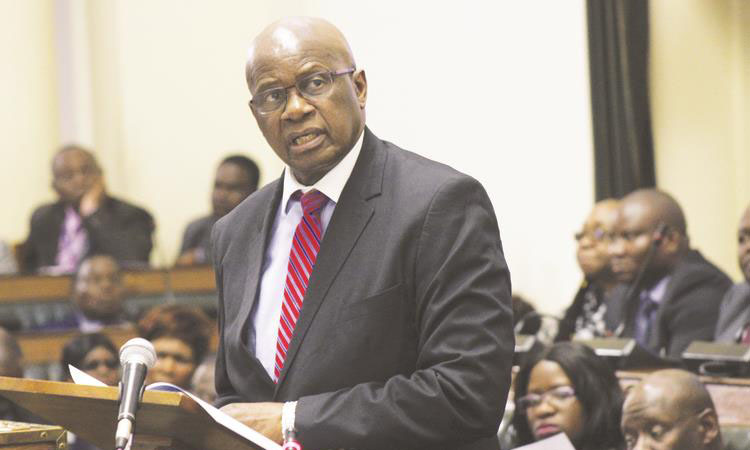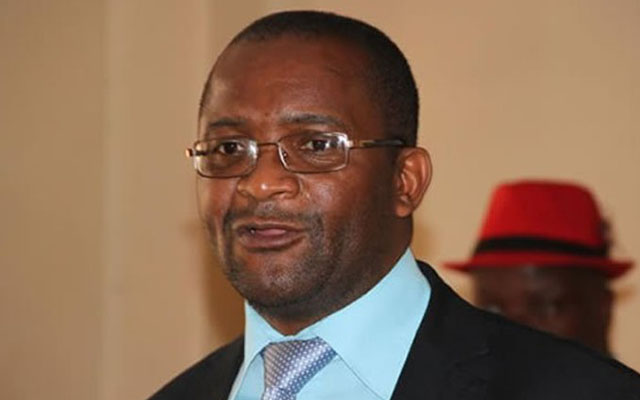EDITORIAL COMMENT: Deal with big fish in the black market

Finance and Economic Development Minister Patrick Chinamasa was on Wednesday thrown at the deep end by Members of Parliament who wanted him to explain the apparent shortage of foreign currency and bond notes, both of which somehow appear plentiful on the illegal parallel market.
He appeared unprepared for the barrage of questions, and therefore promised to give a comprehensive response next week.
The truth though is that whatever explanation Minister Chinamasa might come up with, it is fairly safe to say the challenge of cash shortages is not about to end. That’s regardless whether we formally adopt the South African Rand, which we don’t recommend anyway. There are no easy solutions.
Economists argue that one of the few viable options to increase foreign currency availability is to produce more for the export market. The more we spend on imports, the more we must earn from exports. Foreign investment and Diaspora remittances are some of the avenues to generate foreign currency. But that will never balance the equation so long as we continue to import what can be produced locally.
The Reserve Bank has promised to release more bond notes into the system. To this, the Confederation of Zimbabwe Industries has added its voice, advising that when the RBZ does release more bonds notes, it should stick to smaller denominations, weighted in favour of coins. We believe the industrialists have a point.
Much of the cash is in the informal sector. Much of it is held by foreign currency or cash dealers in places such as Roadport in Harare. One can get any amount of foreign currency provided they are able to pay a premium for it. Rates differ, but the cash is always available.
The legislators are aware of this. When Chinamasa was asked why these cash dealers, who include prominent individuals and institutions, were not being prosecuted, he said there was no law to deal with individuals although the Banking Act could be used if financial institutions were involved.
But the point the CZI was making was that higher denominations tend to facilitate the carrying of large quantities of cash by individuals. Coins or small denominations are cumbersome to carry.
In any case, if law enforcement agencies wanted to do their work, it would be easier to detect people carrying large wads of cash. So that’s one easy way to throttle the trade in cash on the black market.
While there has been a noticeable shift towards PoS, plastic money and mobile money transfers, there is no doubt that some cash is still required. This is mainly for small conveniences like public transport fares, buying newspapers, bread and vegetables at the nearest tuckshop.
Let’s not forget the huge constituency of people living in rural areas. They need cash more than those in urban areas. If anything, they are the first to fall victim to predators who exact usurious premiums for mobile cash withdrawals.
But we also believe that there are senior people involved in cash dealings. One reason is that as soon as new notes are released by the Reserve Bank of Zimbabwe, the first place to find them is Roadport. It tells us that those scruffy young men and women are not on their own. They are fronts for people who have access and influence in banks or the Reserve Bank itself.
Secondly, regardless of how much noise is made about corruption, we still have a flourishing trade in second-hand clothes. Again, it is clear that there are big fish involved, far bigger than the small boys and girls who spend the day in the sun. There are people who export forex and smuggle goods for resale in the country.
That is why the trade continues to flourish without any arrests. There is no evidence that the authorities bother to do random checks on whether import duty was paid.
Finally of course we cannot run away from the nature of the “new economy”, which is that almost everyone has cash in their pocket, but in small quantities they use daily and therefore can’t be banked. Every street vendor is his own bank. That means cash shortages will be with us for sometime. The solution lies in growing businesses, formalising them, and each one of us accepting that we have a duty to be transparent.







Comments